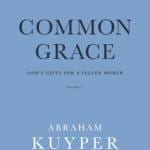Despite the title of this blog, it’s often long enough between reading through works by Francis Schaeffer that I forget how incisive and important a writer he is. Not that he’s perfect, of course. He gets a lot of the details wrong. For example, if you read through his Trilogy (and you should), his presentations of the thought of Kant are just incorrect readings of what Kant is trying to do. And yet, Schaeffer is right about how Kant has been used in church and in the culture since his (Kant’s) time. In other words, if you come away from Schaeffer thinking you’ve understood what Kant said, you’ll be mistaken. But if you come away thinking you understand what impact Kant has had on the theology of the church, you will likely be right on track.
In the same way, Schaeffer is right about how the church is responsible for speaking and behaving while the world is watching. This is the subject of his short book The Church Before the Watching World.
Specifically Schaeffer sets out to address three questions:
“(1) How has the present impurity in the churches come about and what is it?
(2) Why should Christians and churches be concerned with doctrinal purity?
(3) How can doctrinal purity in the church be maintained in practice?” (6)
Schaeffer also includes an appendix outlining the ‘absolute limits’ beyond which one may not pass and still remain a theologically orthodox Christian. These include things like the existence of God, creation, the fall of man, the substitutionary atonement, etc.
Scaheffer’s answers to these questions are all worth thinking about. He spots the origin of the problem of modern churches in the rise of theological liberalism. This new theology takes many forms, including scientific naturalism (its older form) and existentialism (its modern form). Both are attempts to find ultimate truth while rejecting the propositional revelation of the Bible. As a result of this rejection, both lead to despair rather than hope.
Christians should be concerned with doctrinal purity because we believe that adultery is wrong. Just as it is wrong to cheat on a spouse, so it is wrong to cheat on God by introducing false doctrines into the relationship. God has told us specific things that are true about Himself, and we commit spiritual adultery when we deny those things and replace them with ideas and truths that we find more attractive while claiming to be His bride, the church.
Finally, we practice doctrinal purity by holding fast to the truths about God revealed in Scripture–even when these truths cost us unity. This is not to say we should intentionally reject unity: “If we must leave our church it should always be with tears–not with drums playing and flags flying. This is no place for naturally bombastic men to bombast.” (74) In other words, truth > unity, without saying that unity is unimportant.
As with so much of what he has written, this book is worthwhile and should be read. Unfortunately, I believe it is out of print (though I assume it is in the collected works). So if you can find it, be sure to read and enjoy!
Dr. Coyle Neal is co-host of the City of Man Podcast and an Associate Professor of Political Science at Southwest Baptist University in Bolivar, MO












